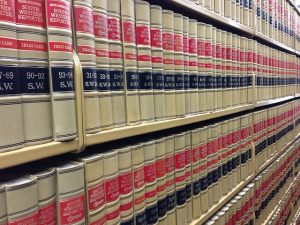
Can a Trust Deed Defeat a Trustee in Bankruptcy?
Sometimes, sometimes not. Often it is the legislation itself which either commands recovery or prevents access. This is a complex area, so we will only briefly cover some general principles here. The first rule is that a trustee of a SMSF receiving a demand for payment from a trustee in bankruptcy should not comply immediately, but should immediately seek legal advice. The bankruptcy trustee will often “try it on” to see what they can shake from the tree.
As a general rule, large contributions made just prior to bankruptcy can often be recovered, but it may critical to determine whether they are “unusual” in the context of past contribution patterns. As regards existing benefits, bankruptcy does not override the preservation rules in the SIS Act, so the trustee in bankruptcy cannot access the super benefits of someone who goes bankrupt prior to their retirement age. If an undischarged bankrupt dies, triggering a death benefit payment, things get messy and arguably the trustee can get their hands on the benefits. However, most SMSF trust deeds contain a clause which suspends or terminates a member’s right to benefits where they go bankrupt, so it may be that no death benefit is payable, anyway. In such cases, the trustee normally has a right to pay or apply any benefits to, or for, the benefit of the bankrupt member’s spouse or dependants.
These forfeiture and suspension clauses were developed after the case to do with Alan Bond’s personal superannuation fund (Caboche & Bond v Ramsay (1993) 119 ALR 215). In that case, the trustee in bankruptcy made a claim based on the fact that, once liquidators were appointed to Bond’s companies, he ceased to be a director and ceased to be employed. At that point, it was argued, he “retired” and became entitled to his superannuation benefits, so his trustee in bankruptcy could claim them on his behalf. However, the super fund trustees thought they were one step ahead. Realising that such a claim might be on the cards, they amended the deed to say that upon bankruptcy, all benefits would be forfeit. In its ruling, the court said that they were too late – the trigger for payment (retirement) had already occurred when the change to the deed was made, so it was ineffective and the trustee in bankruptcy could access the benefits. Because of this, they didn’t have to decide on whether or not the clause would have been effective, were the change made prior to Bond’s retirement. However, on the basis of this case, virtually all SMSF trust deed providers started adding the forfeiture/suspension clause to their deeds, on the basis that it might work, but in the event that it did not, including it would do no harm.
Where a person becomes totally and permanently disabled, thereby entitling them to a lump sum payment, but goes bankrupt before the payment is made, similar principles to the Bond case would seem to apply (ie. the trustee in bankruptcy would have a good case for accessing the benefits).
There is also a provision in the SIS legislation for the Regulator to grant access to superannuation benefits before retirement age on the basis of severe financial hardship. A couple of trustees in bankruptcy have tried to make such an application, but to date the Regulator has knocked them back.

